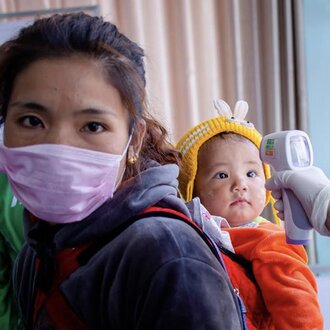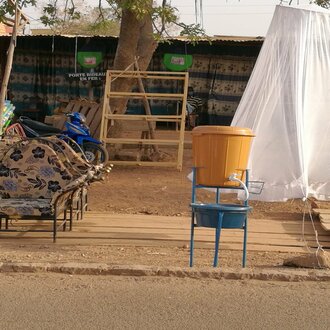As the virus spreads its mayhem across the world, we read and learn from our individual experiences of adapting to the suddenly changed circumstances. There is gratitude for all the things that still work, the privileges we have of a roof over our heads and a full refrigerator close by, the little pleasures of spending time with family, and virtually, with colleagues and friends.
But as the news of thousands dying all across the world spread and grow - a whole generation of the elderly in one region, health workers trying to save lives in protective gear fashioned out of garbage bags in another, of millions of daily wage workers walking back hundreds of kilometers in India, the vulnerability of millions in crowded refugee camps - a deep sense of sadness pervades. We ignore or fight it - sharing images of the sky over COVID or funny memes, hosting virtual parties or sharing pictures of nature reclaiming spaces but the sadness is still there, gnawing at our bones.
It is appropriate to call it by its true name - grief - for the loss of lives, some say the possible loss of a way of living, the uncertainty, the economic impacts... Elisabeth Kübler-Ross in her seminal work identified 5 stages of grieving - Denial, Anger, Bargaining, Depression and Acceptance. Subsequently David Kessler, who worked with her, identified a sixth - Finding Meaning.
As an organization, we find meaning by making our contribution to alleviating the situation. Our staff and partner organizations in the Rohingya camps in Southern Bangladesh distributed disinfectants and hygiene kits for 150,000 people within a few days, despite the enormously difficult conditions, and organized a training on using them correctly. We took similar measures in 60 villages in neighboring Myanmar, including the establishment of simple quarantine stations for workers returning from Thailand. In Benin, our team, in cooperation with the Youth Parliament for Water and the Community Radio Network, launched an information campaign and began distributing hand washing kits. And in Albania, with support from our colleagues, municipalities have started to convene remotely and therefore continue taking important decisions that impact people’s lives during the quarantine.
But on a more global level, are there ways in which we as a society can find meaning in this crisis? Can we move forward from here in ways that honor those we are losing today and change ourselves, our ways of working and living, for the better? The rapid adoption of digital teaching, remote work, zero travel give hope that some of this may remain and continue in the future. What else can we take forward from this time as values and practices that honor the great sacrifices of so many? We can, of course, also relativize things (many more die of the common flu or of on-going wars...), nothing stops us from drawing lessons from these as well.
"All human beings are members of one frame,
Since all, at first, from the same essence came.
When time afflicts a limb with pain
The other limbs at rest cannot remain.
If thou feel not for other’s misery
A human being is no name for thee."
(Saadi Shirazi)





